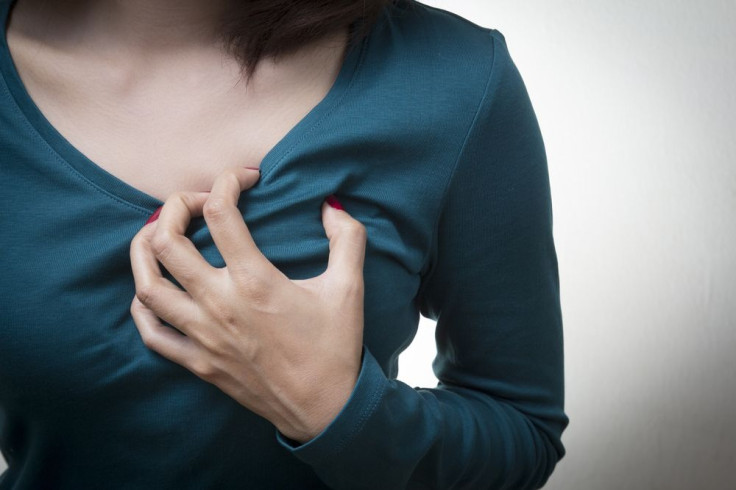Heart Attack Signs Unfamiliar To Younger Women, Who Avoid Both Primary And Medical Care

Heart attacks don’t discriminate. Yet, in a recent study from the Yale School of Public Health, younger women ignore or dismiss signs of a heart attack, delaying life-saving medical care.
Researchers examined the experiences women ages 30-55 had once hospitalized with acute myocardial infarction (AMI). Through in-depth interviews, researchers learned more about the time between a woman’s initial symptoms and seeking medical care. While symptoms among women varied in both nature and duration, the results showed patients inaccurately assessed their risk for heart disease, which influenced their decision to seek medical help.
Put it another way: Women still attribute signs of heart attack to external factors, such as work and family, and don't see a physician as early as they should. Additionally, not only do women not receive prompt or complete workups for their AMI symptoms, women also routinely pass on primary care. This care includes preventive care for heart disease.
"Participants in our study said they were concerned about initiating a false alarm in case their symptoms were due to something other than a heart attack," Judith Lichtman, lead researcher and associate professor and chair of the Department of Chronic Disease Epidemiology, said in a press release. "Identifying strategies to empower women to recognize symptoms and seek prompt care without stigma or perceived judgment may be particularly critical for young women at increased risk for heart disease."
According to the American Heart Association’s Go Red for Women campaign, young men are more likely to suffer from heart attack than women; however, women have been found to suffer more from heart disease than young men prior to their heart attack. That heart attack isn't likely for younger women shouldn't prevent them from visiting the emergency room in the event they experience one or more symptoms.
These symptoms, the AHA added, take the form of "medical problems, poorer physical and mental functioning, more chest pain and poorer quality of life in the time leading to their heart attack." Though it is possible to suffer from a silent heart attack, which is an attack void of obvious signs or symptoms.
Actor and comedian Rosie O’ Donnell, who survived a heart attack in 2012, has made it easier for women to identify heart problems with her acronym HEPPP: hot, exhausted, pain, pale, and puke. When women write any or all of these signs off, chalking their condition up to the stress of their daily life, they put their health at risk.
Heart disease and attack are no longer solely an older man's problem. In fact, more than 15,000 women under the age of 55 die from heart disease in the United States, making it the leading killer of women in this age group. It can strike anyone, anytime, and the way to reverse those numbers it to know the signs and visit a physician as soon as possible.
Source: Lichtman J et al. Cardiovascular Quality and Outcomes. 2015.
Published by Medicaldaily.com



























